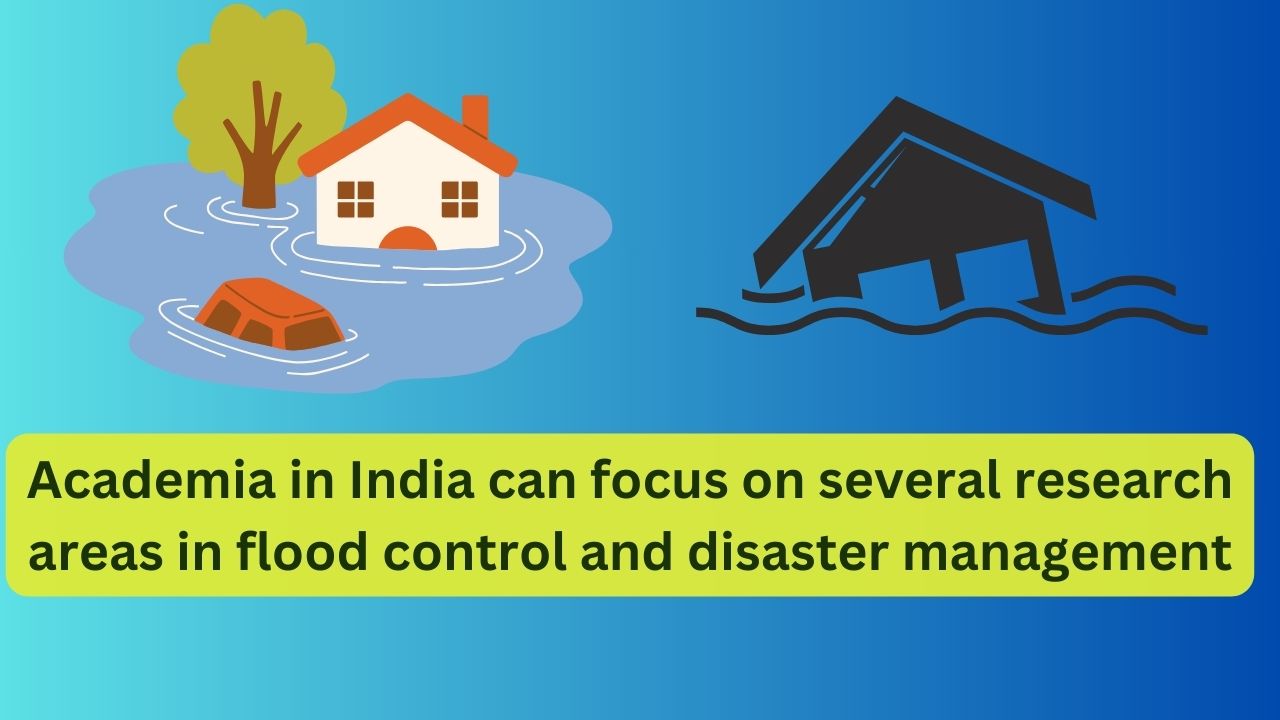Academia in India can focus on several research areas in flood control and disaster management to address the country’s specific challenges and improve resilience. Here are key research areas:
1. Hydrological and Meteorological Research
- Hydrological Modeling: Developing accurate models to predict flood patterns, river discharge, and floodplain dynamics under changing climatic conditions.
- Rainfall-Runoff Relationships: Studying the relationship between rainfall intensity, land use, and runoff to improve flood forecasting accuracy.
- Climate Change Impacts: Assessing how climate change affects rainfall patterns, sea level rise, and extreme weather events leading to floods.
2. Early Warning Systems and Forecasting
- Remote Sensing and GIS: Using satellite imagery, drones, and Geographic Information Systems (GIS) for real-time monitoring of weather conditions, river levels, and flood extent.
- Predictive Modeling: Developing advanced forecasting techniques integrating meteorological data, river flow, and terrain characteristics to issue timely flood alerts.
3. Flood Risk Assessment and Vulnerability Mapping
- Flood Hazard Mapping: Mapping flood-prone areas using spatial analysis to identify vulnerable communities and critical infrastructure.
- Socio-Economic Vulnerability: Assessing socio-economic factors that increase vulnerability to floods, including poverty, housing quality, and access to resources.
4. Infrastructure and Engineering Solutions
- Flood-Resilient Infrastructure: Researching innovative engineering solutions such as flood barriers, levees, and stormwater management systems.
- Natural Flood Management: Promoting ecosystem-based approaches like wetlands restoration, afforestation, and sustainable land use practices for flood control.
5. Community Preparedness and Resilience
- Risk Communication: Developing effective communication strategies to raise awareness and improve community response to flood warnings and evacuation procedures.
- Community-Based Disaster Management: Engaging local communities in participatory planning, training, and capacity building for flood preparedness and response.
6. Policy, Governance, and Institutional Frameworks
- Legal and Policy Analysis: Evaluating existing policies, regulations, and institutional frameworks for flood risk management and recommending improvements.
- Multi-level Governance: Studying governance structures at local, state, and national levels for effective coordination and response during floods.
7. Health and Environmental Impacts
- Health Risks: Assessing public health impacts of floods, including waterborne diseases, injuries, and mental health issues among affected populations.
- Environmental Management: Studying ecological impacts of floods on biodiversity, water quality, and ecosystem services, and developing mitigation strategies.
8. Post-Disaster Recovery and Reconstruction
- Impact Assessment: Evaluating socio-economic, environmental, and infrastructural damages caused by floods to inform post-disaster recovery planning.
- Resilient Reconstruction: Developing guidelines and strategies for sustainable reconstruction of flood-damaged infrastructure and communities.
9. Cross-disciplinary and International Collaboration
- Interdisciplinary Research: Collaborating across disciplines such as engineering, environmental science, social sciences, public health, and policy studies to address complex flood challenges.
- International Cooperation: Engaging in knowledge sharing and capacity building with international partners on transboundary flood management and disaster resilience.
Funding and Collaboration Opportunities
- Government Grants: Securing research grants from government agencies like the Department of Science and Technology (DST), Ministry of Earth Sciences (MoES), and Indian Council of Agricultural Research (ICAR).
- Industry Partnerships: Collaborating with private sector partners for technology transfer, funding, and field implementation of research findings.
- NGO and Community Engagement: Partnering with non-governmental organizations (NGOs) and local communities for field research, data collection, and community-based interventions.
By focusing on these research areas, academia can contribute significantly to enhancing flood control strategies, improving disaster management practices, and building resilient communities in India.


No responses yet